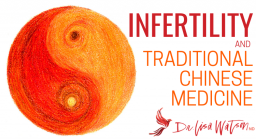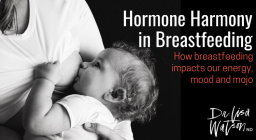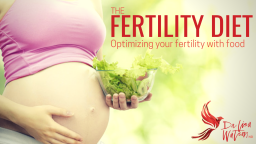
Celiac disease
Celiac disease is more than a gluten intolerance. It is an immune reaction that is triggered by exposure to gluten (a protein found in wheat, rye and other grains) that results in inflammation and damage to the digestive tract. The small intestines, the part of the digestive tract that is damaged by gluten in celiac disease, is also the location of most nutrient absorption. This inflammatory damage can lead to significant nutrient deficiencies and health problems outside the digestive tract.
More than 330 000 Canadians are thought to have celiac disease (rates have doubled in the past 25 years), but only one-third of those people have been diagnosed. Women have higher rates of celiac disease, although we’re not entirely sure why. Celiac disease does not always manifest clear symptoms (gas, bloating, diarrhea) so it can go for years without a diagnosis.
Celiac Disease During Pregnancy
 Women with undiagnosed or untreated celiac disease can experience negative outcomes in pregnancy – longer time to conceive, increased rates of neural tube defects, increased rates of miscarriage, more fetal growth restriction and increased low birth weight babies. Additionally, women with undiagnosed or untreated celiac disease have been found to have a shorter duration of breastfeeding (about 2.5 times shorter) than treated women with celiac disease.
Women with undiagnosed or untreated celiac disease can experience negative outcomes in pregnancy – longer time to conceive, increased rates of neural tube defects, increased rates of miscarriage, more fetal growth restriction and increased low birth weight babies. Additionally, women with undiagnosed or untreated celiac disease have been found to have a shorter duration of breastfeeding (about 2.5 times shorter) than treated women with celiac disease.
The poor absorption of folic acid in celiac disease may be the primary cause of the majority of these outcomes. Folic acid is necessary for DNA replication and the production of new cells – two very important functions in early embryo development. We know that folic acid deficiency can lead to an increased risk of neural tube defects and has been linked with an increased risk of miscarriage. Additionally, deficiencies in zinc and selenium are common in untreated celiac disease. These nutrients are also necessary to ensure healthy pregnancy. You can read more about the nutrient deficiencies in celiac disease in my article Nutrient Deficiencies in Celiac Disease.
There may also be an immune component to the impact of untreated celiac disease on pregnancy. It has been postulated that anti-transglutaminase antibodies may be able to damage the placenta or the maternal endometrial cells. These antibodies are only present during active, untreated celiac disease.
Testing for Celiac Disease in Pregnancy
Some researchers suggest that all women with unexplained miscarriages be tested for celiac disease. Some suggest that all women who are trying to conceive be tested. Still others recommend testing only if hemoglobin or ferritin (iron) levels are low. Testing is done with an initial blood test which can then be followed with a biopsy of the lining of the small intestine to confirm the diagnosis. Your Naturopathic Doctor or Medical Doctor can help you decide whether testing is warranted.
Managing Celiac Disease During Pregnancy
The negative outcomes of celiac disease on pregnancy can all be managed by consuming a gluten free diet and taking appropriate supplementation to ensure nutrient adequacy. In the majority of women, 6 to 12 months of a gluten free diet can reduce the risk of negative pregnancy outcomes down to normal levels. Using a professional quality prenatal or folic acid supplement can also help to improve pregnancy outcomes in women with celiac disease – discuss with your Naturopathic Doctor which gluten-free supplements will be most appropriate for you.
Select References
- Moleskia SM, Lindenmeyer CC, Veloskic JJ, Millera RS, Millera CL, Kastenberga D, DiMarinoa AJ. Increased rates of pregnancy complications in women with celiac disease. Ann Gastroenterol 2015;28:236-40.
- Tersigni C, Castellani R, de Waure C, Fattorossi A, De Spirito M, Gasbarrini A, et al. Celiac disease and reproductive disorders: meta-analysis of epidemiological associations and potential pathogenic mechanisms. Hum Reprod Update 2014;20(4):582-593
- Martinelli P, Troncone R, Paparo F, Torre P, Trapanese E, Fasano C, et al. Coeliac disease and unfavourable outcome of pregnancy. Gut 2000;46(3):332-5.
- Dickey W, Stewart F, Nelson J, McBreen G, McMillan SA, Porter KG. Screening for coeliac disease as a possible maternal risk factor for neural tube defect. Clin Genet 1996;49(2):107-8.
- Rostami K, Steegers EA, Wong WY, Braat DD, Steegers-Theunissen RP. Celiac disease and reproductive disorders: a neglected association. Eur J Obstet Gynecol Reprod Biol 2001;96(2):146-9.
Disclaimer
The advice provided in this article is for informational purposes only. It is meant to augment and not replace consultation with a licensed health care provider. Consultation with a Naturopathic Doctor or other primary care provider is recommended for anyone suffering from a health problem.
















